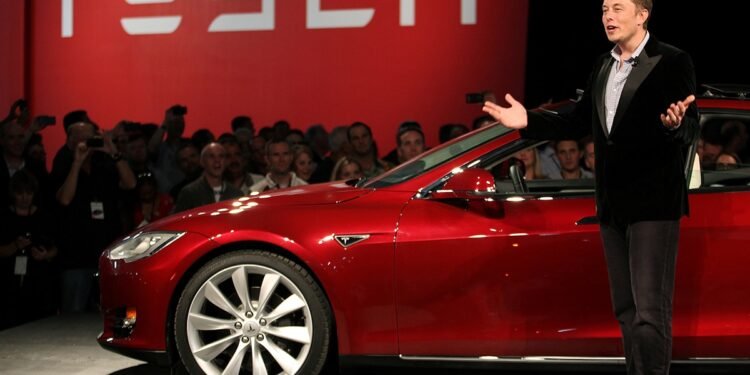Elon Musk may be pumping in millions of dollars to influence elections and his standing in the US, but sales of his auto company Tesla are seeing a steady plunge in the key European markets, with latest data indicating further fall in the electric vehicle (EV) sales again in March.
The falling Tesla sales are attributed to the combined effect of the rising trend of drivers shunning Musk’s electric car brand as competition from China stiffens and protests against his political views.
New Tesla sales in France and Sweden dropped for a third consecutive month, contributing to its lowest first-quarter sales figures in the two countries since 2021, Reuters reported.
Tesla sales in Europe
“Never has a car brand suffered such a global fall from grace,” the report quoted Quentin Willson, founder of British EV campaign group FairCharge and a Tesla owner, as saying.
Billionaire CEO Musk, a close ally of US President Donald Trump, has stirred controversy by courting far-right parties in Europe, adding to Tesla’s sales slump ahead of the much-anticipated launch of its Model Y mid-size SUV.
In response to his right-wing activism, Tesla cars and dealerships have become targets for vandalism.
Dozens of cars were burnt and showrooms spray painted in several European cities including Rome, Berlin and Stockholm in recent days.
Analysts expect data from Italy and other European markets on Tuesday and Wednesday to provide more clues on the group’s global first-quarter delivery figures, to be released on Wednesday, and consumer sentiment towards the brand.
Tesla last month registered 3,157 car sales in France, 911 in Sweden and 2,211 in Norway, dropping 36.83 per cent, 63.9 per cent and 1 per cent, respectively, from last year, official data showed.
In Denmark, registrations totalled 593, down 65.6 per cent, and they fell by 61 per cent to 1,536 in the Netherlands.
Quarterly sales were down 41.1 per cent in France, 55.3 per cent in Sweden, 12.5 per cent in Norway, 55.3 per cent in Denmark and 49.7 per cent in the Netherlands.
Spain and Portugal, however, bucked the trend, with Tesla registrations for March up 34.3 per cent and 2.1 per cent, respectively.
But they dropped 11.8 per cent and 25.7 per cent in the quarter despite an accelerating electrification trend in the two markets that led to market share gains for some Chinese competitors.
Similarly, the brand’s registrations in Italy were up 51.3 per cent in March, but down 6.8 per cent for the quarter.
Tesla faces a number of challenges in Europe. It has a small, ageing lineup, while traditional automaker rivals and new Chinese entrants are launching new and often cheaper EVs.










